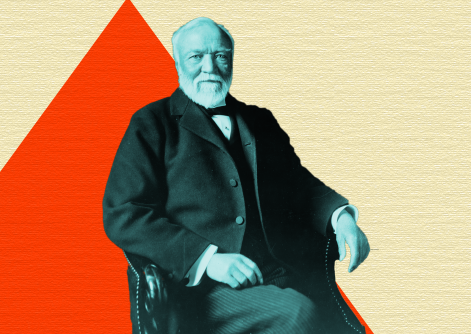America is exceptional, especially where giving is concerned. A NewGeography.com blog post brings the most recent reminder of this fact, and it’s always good to recall that America isn’t just a bit more generous than your typical country. We’re an order of magnitude (and counting) more generous than most countries, including Germany and Japan, and beyond that stunning stat, we’re an additional two to four times more generous when compared to India or Mexico.
And yet when you look at the standard numbers for these comparisons (from the Johns Hopkins Nonprofit Sector Project), it’s hard to see much of a pattern to them. A sampling, measured by percentage of GDP:
1.9% United States
1.3 Israel
1.2 Canada
0.9 Spain
0.8 United Kingdom
0.3 France
0.22 Japan
0.18 Korea
0.17 Austria
0.13 Germany
0.09 India
0.04 Mexico
Obviously a country’s size isn’t a factor. Wealth seems to play at most a small part, and ditto for religiosity: India and the U.S. have high rates of religious practice and are at opposite poles. Cultural similarities don’t loom large; Hispanic culture, for example, doesn’t link high-scoring Spain with in-the-cellar Mexico. The blog post’s authors point to Anglo-Saxon cultural similarities, but I see that Canada has a rate fully 50 percent higher than her mother country, while the United States beats Canada with a rate 37 percent higher – which means we more than double the generosity of Mother England.
Nima and Tino Sanandaji, authors of the NewGeography essay, do find one strong correlation among countries with high rates of philanthropy: “SuperEntrepreneurs.” That’s the Sanandajis’ term for “self-made men and women who have earned at least $1 billion and who have appeared in Forbes magazine’s list of the world’s richest people between 1996 and 2010.” The authors researched about 1,000 such creatures and found
a very strong correlation between the per capita number of SuperEntrepreneurs in different countries and donations to charity as a share of GDP. This relationship holds also when controlling for per capita GDP and tax rates.
The standouts for joining entrepreneurship and philanthropy are the United States, Israel, Canada, and the United Kingdom. But, the authors rightly ask, is it a mere correlation they have found between these two characteristics, or does one cause the other?
To investigate the question, the Sanandajis turn to an interesting 2002 article in the journal Small Business Economics by Zoltan J. Acs and Ronnie J. Phillips (“Entrepreneurship and Philanthropy in American Capitalism,” available from JSTOR or here). This lengthy essay insists that “American capitalism differs from all other forms of industrial capitalism” because it focuses
on both the creation of wealth (entrepreneurship) and the reconstitution of wealth (philanthropy). Philanthropy is part of the implicit social contract that continuously nurtures and revitalizes economic prosperity.
Both sets of authors believe this relationship benefits both the economy and civil society. Or better put, this relationship benefits the economy because civil society has been benefitted.
Acs and Phillips have lessons for persons with attachments to both sides of the entrepreneurship/philanthropy equation. The first lesson is that economists and all those who stress economic issues (libertarians and Republicans, this means you) should take giving more seriously. Acs and Phillips go so far as to demand that persons who focus on economics face the fact that man does not live by self-interest alone.
That is to say, the desire to give is as natural to humans as the desire to gain, and a real distinction divides these primal impulses. Please let’s drop the overextended abstraction that no difference exists between Mother Teresa’s “work” and “rewards” in the gutters of Calcutta and the work and rewards of a stock speculator. Or between Bill Gates’s investing in a new division of Microsoft and his “investing” his wealth in his foundation.
Confessing this difference exists does not mean that all remunerative work is dirty and harmful, while all giving is wise and beneficent. We flawed human beings can make a hash of anything, we often heap up self-deception as high as Mount Everest, and we can also be generous to others in the midst of the most humdrum workday. But as Acs and Phillips observe, even the granddaddy of economists, Adam Smith, declared that
how selfish soever man may be supposed, there are evidently some principles of his nature, which interest him in the fortune of others, and render their happiness necessary to him, though he derives nothing from it, except the pleasure of seeing it.
The second lesson: Just as the economically minded must learn the lesson of man’s desire to give, their opposite numbers in civil society’s nonprofits must learn that they are not in an “independent sector.” They are dependent not just on that abstraction known as the economy but also, horrors, on its heroic leaders, the entrepreneurs who power its growth and innovation and thereby make possible the giving that is civil society’s lifeblood. As Acs and Phillips put it,
Entrepreneurs – individuals who take risk and start something new – are indispensable to economic growth and prosperity. Entrepreneurship – the process of creating a new venture and assuming the risks and rewards – has been essential in the renewal of prosperity in the U.S.
Acs and Phillips add that the information revolution, whose fiber optic waves are ridden so gleefully today by civil society groups, only came about because junk bond king Michael Milken raised tens of billions of dollars for telecom entrepreneurs during the information revolution's first wave in the 1980s, while similar high-flying venture capitalists made possible the second wave of entrepreneurial Internet businesses in the following decades.
This kind of economic freedom leads to the accumulation of wealth in private hands, and “if that wealth is taxed away wealth creation will cease.” The key is to keep an old American bargain: allow entrepreneurial capitalists to grow the economy, while encouraging them “to build up the great social institutions that have a positive feedback on future economic growth.” Where would today’s Amazon and Cisco be, for example, if a century ago the Rockefeller family hadn’t established the University of Chicago, whose faculty has produced dozens of Nobel prizes in the hard and soft sciences?
And yet, complain Acs and Phillips, the average philanthropoid seems incapable of understanding this simple feedback loop. The authors recall an American Assembly meeting where
the participants (most of whom were professionals who worked for foundations and other nonprofit groups) produced a statement calling on philanthropists to do more to redistribute their wealth from the “haves” to the “have nots.”
Such simple-minded and counter-productive clichés fail to distinguish “between redistribution and the creation of opportunity.” The American tradition of philanthropy “is about investing wealth to create opportunity.”
And before any garden-variety nonprofit leftist starts screeching about INEQUALITY! let me assure you that Acs and Phillips are themselves worried about “the greatest criticism of market economies,” namely, how across the world “the unequal distribution of wealth is becoming more unequal.”
If the unequal distribution of wealth disturbs you, the solution is not to make America more like the rest of the world. Would you prefer socialized France where, the Sanandajis observe, “inherited wealth plays an increasingly important part of the economy” and the people are less than one-sixth as generous as America? No, the solution is to spread the ideas – economic and philanthropic – that make American capitalism successful.
Countries, including America, can follow the French path, or they can follow the traditional American path, which creates dynamic, not dynastic wealth and allows newcomers to rise. Acs and Phillips observe that whereas
in 1950 eighty percent of wealth on the Forbes list of the richest people in America was inherited by 1990 it has fallen to only 20 percent.
One More American Exception
Acs and Phillips leave us with one more American mystery of exceptionalism to ponder. They note that in the first half of the twentieth century, Progressivism in America suggested that the national government should absorb ever more of the philanthropic functions that had traditionally been provided by civil society. This and the burden of financing two world wars led to heavier taxation and an expanded welfare state. But
what is interesting is that in the United States the rise of the welfare state did not coincide with a decline in philanthropy.
From 1929 to 1959, they note, the rate of giving continued to bump up and down its usual range: 1.7% to 2.4% of GDP.
Let us sum up with wisdom from an unlikely source, Newsweek, which at least on September 29, 1997, recognized
There’s no escaping the brutal truth: the nation famous for capitalism red in tooth and claw, the epicenter of the heartless marketplace, is also the land of the handout. It’s not really such a paradox. Both our entrepreneurial economic system and our philanthropic tradition spring from the same root: American individualism. Other countries may be content to let the government run most of their schools and universities, pay for their hospitals, subsidize their museums and orchestras, even in some cases support religious sects. Americans tend to think most of these institutions are best kept in private hands, and they have been willing to cough up the money to pay for them.
I’d amend that slightly: America’s private associations deserve as much credit as her individualism for producing our exceptional society, but the bottom line is the same: entrepreneurship and philanthropy are co-dependent. Let’s pray to the God who blesses America that they remain so.
Hat tip to Howard Ahmanson, a notable philanthropist and son of a notable financial entrepreneur, who wisely adds that in America, philanthropy is for everyone, not just super-entrepreneurs.
FOOTNOTE: The Acs and Phillips article is well worth reading, but they repeatedly engage in simple-minded cheerleading of giving and fail to see that big foundations have done much harm as well as much good, and the same goes for many of the big donors they praise. A similar essay by Acs, Phillips, et al. is available here. For more on how the Rockefellers' giving produced dozens of Nobel laureates, see this entry in the Almanac of American Philanthropy.







My thanks to Scott Allen for a valuable reference and to Howard Ahmanson for his wise comment on the way the Bible teaches that everyone should give.
One of the best things I’ve seen on Howard’s point is the new book, Charity, by Gary Anderson, which digs into the Hebrew and Christian scriptures’ teachings on this score.
My review of the book is at http://www.philanthropyroundtable.org/topic/excellence_in_philanthropy/faithful_giving
An excerpt from the review:
In the Greco-Roman world, “the plight of the poor was not felt to be a major concern of the gods.” The pagan rich gave, usually in posthumous bequests, to erect public theaters, baths, and basilicas for governmental offices. Only in Christian times did charity become embodied in hospitals, homes for the elderly, aid to orphans. Jews and Christians gave whether they were rich or poor; they offered their alms while living; and they sometimes gave their entire lives in service as rabbis, monks, or nuns.
The fourth-century Roman Emperor Julian is called “the Apostate” because he wanted to revive the Greco-Roman paganism then being eclipsed by Christianity. He worried that a great obstacle to his goal was the “disgraceful” neglect of the poor by pagans. “When no Jew ever has to beg, and the impious [Christians] support not only their own poor but ours as well, all men see that our people lack aid from us,” he wrote.
Even a pagan emperor understood that something was fundamentally wrong with that. Jews and Christians went even further and found immense joy in giving. “Stretch out your hand to the poor,” proclaimed the Jewish author of the book of Sirach, “so that your blessing may be complete.”
Good article Scott. I’d like to offer you another article I read today that also sheds light on this topic:
http://darrowmillerandfriends.com/2014/07/10/arthur-guinness/
Scott Allen
I don’t know about America necessarily in regard to this, but the Biblical doctrine of the tithe teaches that philanthropy is for everyone. And, Rodney Stark in The Rise of Christianity informs us that a weakness of the Roman pagan model was that it depended on the few, the rich, and the state.